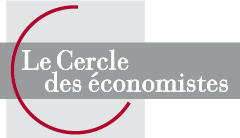Quality, ethics and creation: the challenge of new jobs
Overview
New forms of employment – platforms, micro-entrepreneurship, ultra-flexible working hours, very short fixed-term contracts – have developed throughout the OECD countries as a result of the digital revolution. Although they still only concern a minority of jobs, they often make the economic model of new services, for which there is growing demand, viable. However, the current crisis has shown some limitations. These jobs were the first to be impacted by the downturn because the cost of adjusting them is low. They also offer little protection to employees, whose working conditions are sometimes in question. Nevertheless, these jobs will be an essential link in the economic recovery, and their flexibility will prove to be an asset at a time when uncertainty will still prevail. They will provide employment opportunities in areas and for groups that are currently deprived of them, primarily young people with little or no work experience. In this context, how can these new jobs be better regulated without running the risk of killing the economic models that depend on them? How can we ensure a minimum common base of social protection without bringing these forms of employment within the strict framework of salaried employment? What support should be implemented in parallel so that they are a springboard to stable employment rather than a trap of precariousness, particularly among young people and the least qualified groups?
Speakers





Coordinator

Moderator













